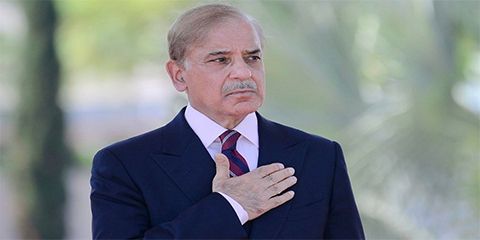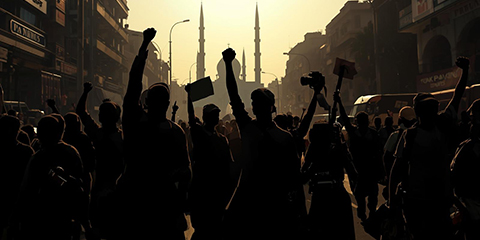Pakistan's digital hypocrisy: PM Shehbaz Sharif tweets Trump while citizens face X ban
JournalismPakistan.com | Published last year | JP Staff Report
Join our WhatsApp channel
ISLAMABAD—In a display of striking irony that has inflamed public sentiment, Prime Minister Shehbaz Sharif took to X (formerly Twitter) to congratulate US President Donald Trump—using the very platform his government has banned from public access in Pakistan for nearly a year.
"My warmest congratulations to @realDonaldTrump," Sharif posted, seemingly oblivious to the glaring contradiction of using a platform that remains inaccessible to the average Pakistani citizen without virtual private networks (VPNs).
The move sparked immediate backlash on X, with critics highlighting the government's apparent double standards. "Which VPN are you using?" questioned one user, while others pointed out the inherent hypocrisy of government officials freely using a platform they've deemed too dangerous for public consumption.
The X ban, implemented in February 2024 following a controversial video about election result manipulation, has transformed into a symbol of selective censorship. While the government cited "national security concerns" as justification, their continued use of the platform has undermined this rationale.
The incident has brought Pakistan's digital governance crisis into sharp focus. Critics argue that the ban, rather than addressing genuine security concerns, serves as a tool to control narrative and suppress dissent, particularly regarding sensitive political issues such as the detention of former Prime Minister Imran Khan and allegations of election rigging.
Some users seized the moment to highlight broader political tensions. "This so-called Prime Minister is using X via VPN, as his handlers have blocked it in Pakistan since last year's rigged elections," posted one user, echoing widespread concerns about democratic backsliding in the country.
The controversy extends beyond domestic politics. Several responses to Sharif's congratulatory message pointed out the perceived inconsistency in his government's relationship with U.S. politics, noting their previous alignment with the Biden administration and alleged involvement in domestic political changes.
This digital divide between Pakistan's ruling class and its citizens represents a broader pattern of governance where rules appear to apply differently to those in power.
The situation highlights a crucial question: If X is secure enough for government officials to conduct diplomatic communications, why isn't it secure enough for ordinary citizens? This inconsistency suggests that the ban may have less to do with national security and more to do with controlling public discourse.
As Pakistan continues to grapple with questions of digital rights and freedom of expression, this incident serves as a stark reminder of the growing disconnect between those who make the rules and those who must live by them. The prime minister's tweet, intended as a diplomatic gesture, has instead become a symbol of the digital apartheid facing Pakistan's citizens.

























